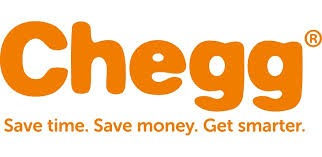In the space of the past week, news from two travel publishers–Frommer’s and Lonely Planet–has not been hopeful. Frommer’s Media bought its brand back from Google after the online giant simply didn’t do anything with it, and Lonely Planet lost around 100 staff members in a drastic downsizing following its sale to a US-based cigarette tycoon who’s 20-something CEO recently finished college. While Frommer’s has plans to publish as many as eighty new travel titles in the coming year and a half, and reports from the Lonely Planet sale claim that they will be moving forward in the digital space, there’s more to what’s happening with destination publishing than meets the eye.
Both Frommer’s and Lonely Planet have enjoyed long-held reputations for providing accurate, trustworthy information written by authors who spent a great deal of time in the locations they reported on. Both were also considered fairly pioneering in the adoption of a digital format, recognizing that travelers needed instant access to information via their devices. Lonely Planet even offered a reader-driven forum, Thorn Tree, to help its readers get the most accurate and up-to-date information on foreign locations from fellow travelers.
But even more than the travelers who purchased titles to be used as an accurate reference guide while on location, a great number of consumers bought travel guides to plan their “dream vacations,” trips they knew they most likely would not take but that they enjoyed spending some quiet time thinking about. That experience isn’t something that readers tended to do with an at-your-fingertips interactive app, preferring to highlight and bookmark features in a printed book, spending hours perusing the full-color photographs and reading the narrative accounts of the locale.
Failure to adapt to digital certainly wasn’t to blame, as initially happened with companies who couldn’t keep up with the consumers who wanted ebooks. Some critics have argued that in the case of travel guides, free information is all too easy to find, a fact that the newspaper industry is still trying to adjust to. Travel sites with free reviews from actual “everyday” travelers (as opposed to professional, experienced world travelers) and travel bloggers who share their knowledge garnered from their own love of seeing the world have made it all too simple to find quick answers without the investment in a printed guide.
So what do these unfortunate developments say about the publishing industry as a whole? This news serves as a reminder, an almost cautionary tale, that there are a wide variety of reasons consumers choose to pick up a book–or not. In all areas of publishing, whether it’s travel, biography, or even fiction, there has to be an element of value-added content in the purchase to justify the time and monetary investments when free information or entertainment can easily be found.
Mercy Pilkington is a Senior Editor for Good e-Reader. She is also the CEO and founder of a hybrid publishing and consulting company.

